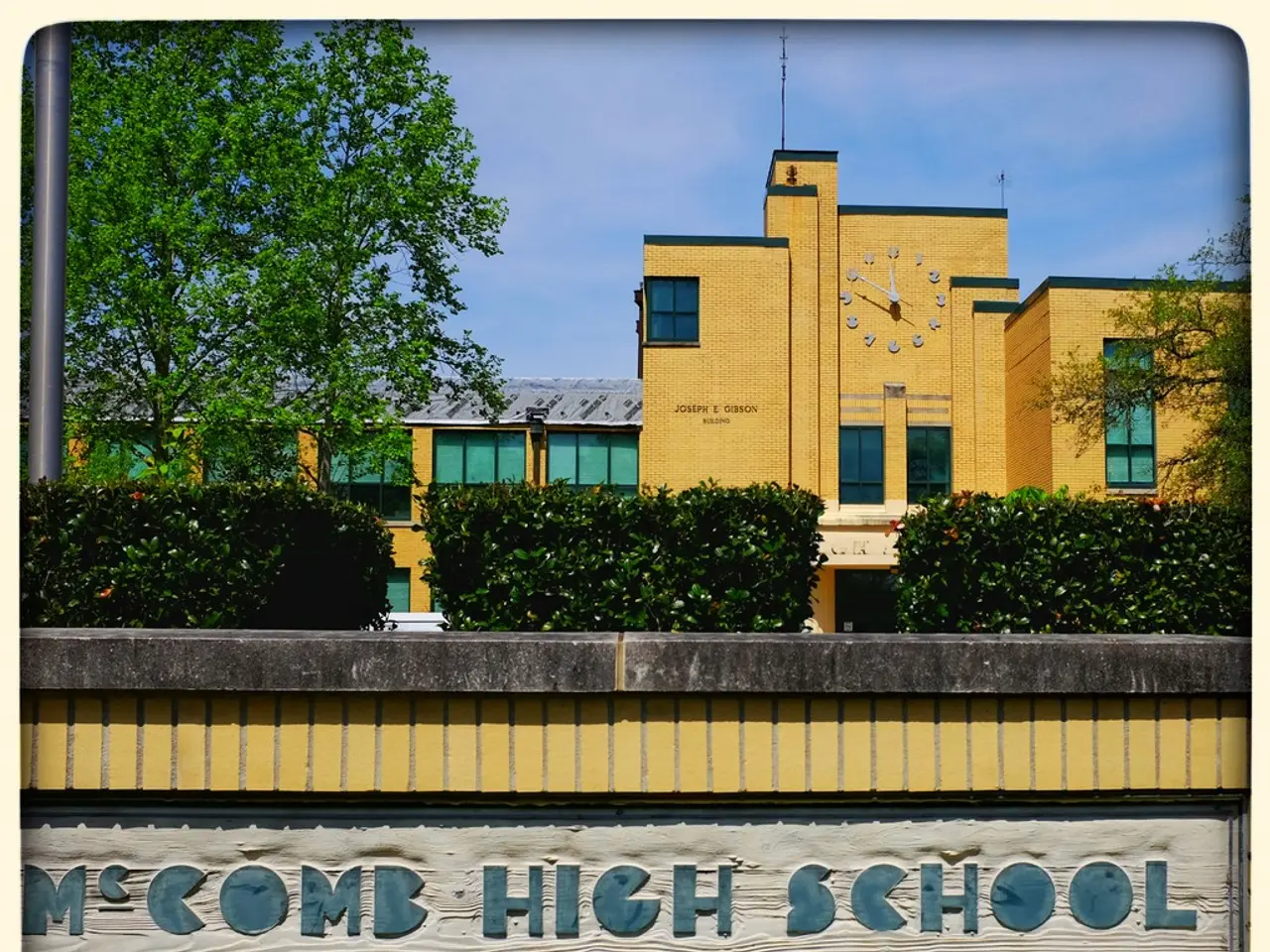Judge upholds Harvard's admission policy decision
Title: Harvard's Legal Battle to Maintain International Student Enrollment
In the ongoing battle between Harvard University and the U.S. Department of Homeland Security (DHS), a federal judge has managed to temporarily block DHS's attempt to revoke Harvard's critical Student and Exchange Visitor Program (SEVP) certification.
On May 29, 2025, US District Judge Allison Burroughs extended a temporary restraining order (TRO) that keeps DHS's revocation action on hold, enabling Harvard to continue admitting international students while the case unfolds. The TRO is intended to provide both parties the opportunity to agree on a permanent preliminary injunction that will halt DHS's action more definitively during the legal proceedings[3].
Harvard filed a comprehensive 72-page lawsuit challenging DHS's revocation on multiple grounds, alleging violations of the First Amendment, Due Process Clause, and the Administrative Procedure Act. Harvard further contests DHS's jurisdiction to revoke the J-1 designation, which falls under the Department of State, not DHS. Harvard seeks both preliminary and permanent injunctions to prevent the unlawful revocation and is suing DHS, Immigration and Customs Enforcement, the Department of Justice, and the Department of State, naming key officials as defendants[2].
The legal battle remains active, with no final decision reached as of now. In a potential shift, DHS has reportedly shown willingness to move from an immediate revocation strategy to a longer administrative process, potentially lessening the immediate impact on Harvard’s international enrollment[3].
According to the latest report, foreign students, who constitute one-quarter of Harvard's enrollment, were brought into the fight in April when US Secretary of Homeland Security Kristi Noem demanded Harvard hand over extensive records regarding any dangerous or illegal activities by foreign students. Although Harvard claims it complied with this demand, Noem argued that the response was insufficient, and on May 22nd, Noem revoked Harvard's certification in the Student and Exchange Visitor Program. The sanction immediately put Harvard at a competitive disadvantage in attracting top international students[1].
President of Harvard University, Alan Garber, has previously stated that the university has taken steps to combat anti-Semitism but will not compromise its "core, legally-protected principles," even in the face of federal ultimatums[1].
It seems that the war of words between Harvard and the Trump administration is far from over, as the two parties continue to clash over governance, policies, and constitutional rights. Stay tuned for updates as this dispute unfolds.
[1] AP, WASHINGTON[2] Foreign Policy[3] Inside Higher Ed
Photo: Reuters
The ongoing legal dispute between Harvard University and the U.S. Department of Homeland Security (DHS) is significant in the realm of policy-and-legislation and politics, following the significant revocation of Harvard's Student and Exchange Visitor Program (SEVP) certification by DHS. General news outlets report that the issue, which involves international student enrollment, has escalated to a comprehensive lawsuit filed by Harvard challenging DHS's actions on multiple constitutional grounds.





